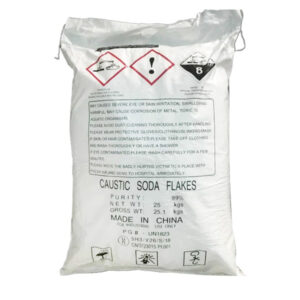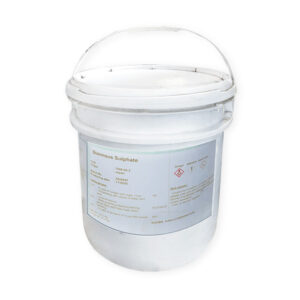Chemical formula: C 6 H 8 O 7
Chemical name: Citric Acid, Citric Acid
Origin: China
Specification: 25kg/bag
Citric acid, also known as citric acid monohydrate, commonly known as lemon acid, is a weak organic acid found in citrus fruits.
Citric acid has a molecular mass of 192.13 g/mol, melting point of 150 degrees C, boiling point of 175 degrees C.
Nature
Physical Properties of Citric Acid
At room temperature, citric acid exists as a white crystalline powder or in anhydrous form or as a solution C6H8O7.H2O containing one molecule of water for each molecule of citric acid.
Has a characteristic sour taste
Molecular mass: 192.13 g/mol
Melting point: 153 degrees C
Boiling point: 175oC (decomposition).
Solubility in water: 133 g/100 ml (20°C)
Acidity (pKa): pKa1=3.15, pKa2=4.77, pKa3=6.40
Chemical Properties of Citric Acid
Acidity of citric acid:
Due to the influence of the carboxyl group -COOH, each carboxyl group can donate a proton to form a citrate ion.
Buffering properties of citrates:
Citrate salts are excellent buffers for limiting pH changes in acidic solutions.
Citrate ions also combine with metal ions.
Such combinations form salts, most commonly calcium citrate.
Citrate ions can combine with metal ions to form complexes used as preservatives and water softeners.
Due to the influence of the carboxyl group, citric acid is acidic. The citrate ions of citric acid combine with metal ions to form salts. Citric acid exists in two forms at room temperature: the first form is a monohydrate containing one molecule of water in citric acid, called citric acid monohydrate or sourdough. The second form is anhydrous white crystalline form, that is, containing no water molecule in citric acid, called citric acid anhydrous or anhydrous lemon acid.
Citric acid contains water so it is not as pure as citric acid anhydrous so the price of citric acid monohydrate is lower than the price of citric acid anhydrous.
Applications of citric acid
Applications of Citric Acid in the Food Industry
All bottled drinks, or packaged processed foods contain preservatives made from Citric Acid or contain food additives to increase acidity, enhance flavor,
Citric Acid is also an antioxidant, controlling the pH in food.
In particular, Citric Acid is added to canned fruits and vegetables to protect against botulism, a rare but serious illness caused by bacteria.
Citric acid is also widely used in winemaking as a substitute or supplement when fruits contain little or no natural acidity.
Applications of Citric Acid in Disinfection
Citric acid has the ability to form complexes with many metals which have positive effects in soaps and detergents.
It is considered a perfect substitute for nitric acid in biotechnology and pharmaceutical industry for cleaning pipes.
Citric acid is the active ingredient in some kitchen and bathroom cleaning solutions.
Citric acid is sold commercially as a general disinfectant and cleaner to remove soap scum, hard water stains, limescale, and rust.
Applications of Citric Acid in Beauty
Citric Acid is also a great remedy for women in skin care and treatment such as mild acne, dark spots, brown spots, wrinkles and skin with clogged pores.
You can use Citric Acid in the form of cosmetics containing it or using masks, toners or exfoliating products by making them yourself at home. Citric Acid not only helps you improve many skin problems but also ensures to bring bright, smooth skin and anti-aging.
Applications of Citric Acid in Medicines and Dietary Supplements.
You will find Citric Acid in the ingredients of some medications especially tablets, chewables or syrups where it functions to preserve the active ingredients and is used to enhance or mask the taste of medications.
Applications of Citric Acid in Daily Life
We are not talking about distant things, the application of Citric Acid to the things around us is undeniable such as disinfecting insect bites, using it in combination with honey to exfoliate or treat bad breath, armpit odor, deodorizing the refrigerator by cutting a few slices of lemon, grapefruit, orange and putting them in the refrigerator,
Safe to use
Citric acid is safe to use in food. Excess amounts of citric acid are easily metabolized and excreted from the body. However, contact with dry or concentrated citric acid can cause skin and eye irritation, so protective gear should be used when handling citric acid. Excessive use of citric acid can also damage tooth enamel. Close contact with the eyes can cause burns and loss of vision, and sometimes too much citric acid can damage hair.
Measures and conditions to be applied when using and handling hazardous chemicals
– Avoid direct contact with skin and eyes. In case of insufficient ventilation,
Wear suitable respiratory equipment. If swallowed, seek medical advice immediately and show the container or label.
– Change protective clothing after completing work.
– Comply with procedures and operations during operation and sampling.
Measures and conditions to be applied during storage
– Keep away from incompatible substances such as oxidizing agents, reducing agents, metals, acids, alkalis, moisture.
– Store in a cool, dry place.
– Do not place near heat sources, do not place under exposed electrical wires, do not place near explosives.
– Requirements for storage and storage tanks: Tanks are not made of aluminum, tin or zinc materials. Do not store or mix with water, acids, flammable liquids, organic halogen compounds, nitro methane and metals such as aluminum, tin and zinc.







Reviews
There are no reviews yet.